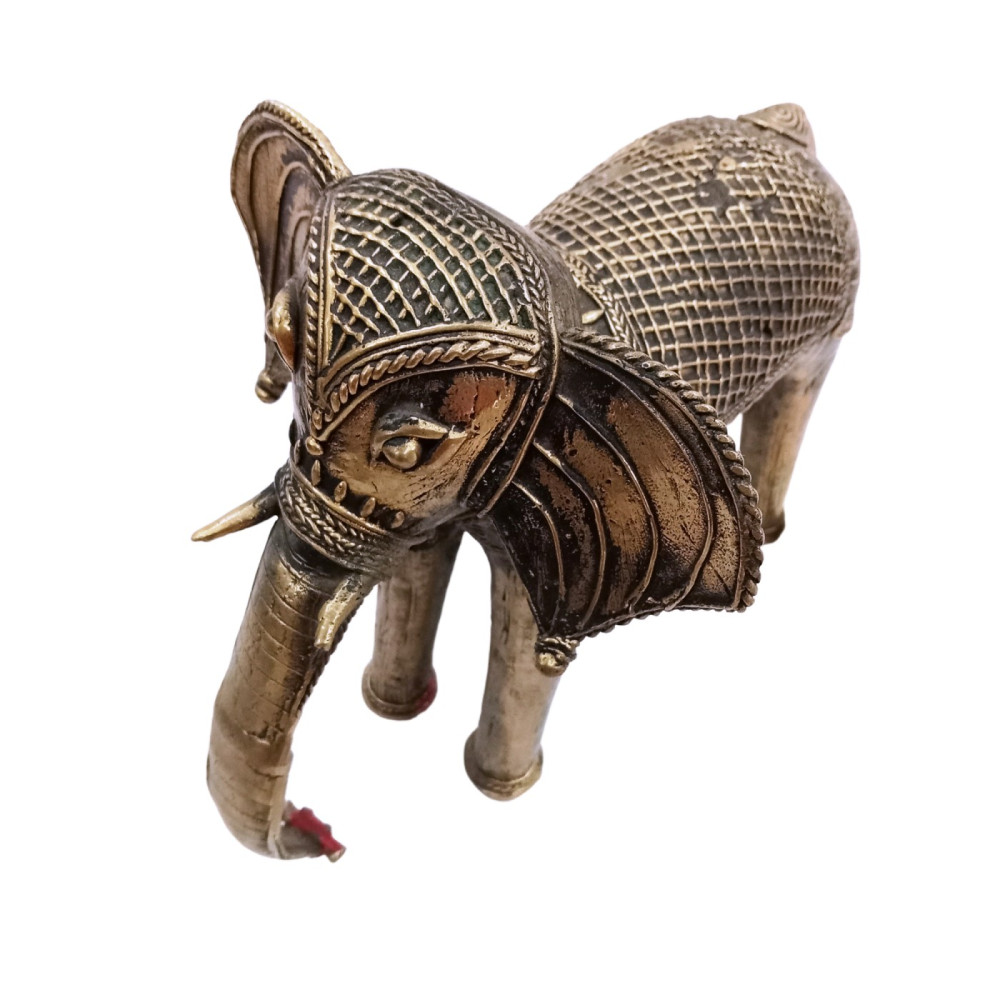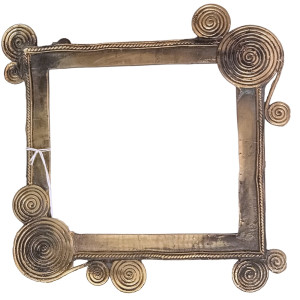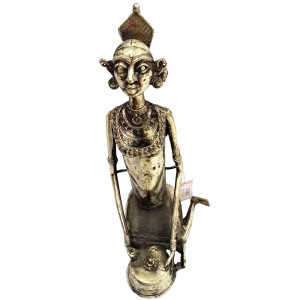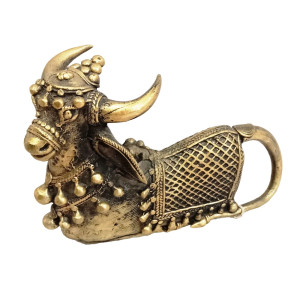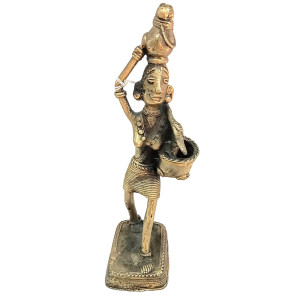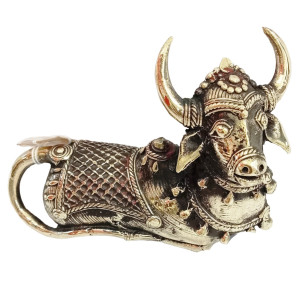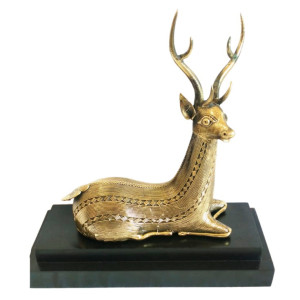Standing Elephant Jali Work
Bastar Dokra is a traditional form of metal casting and sculpting that originates from the Bastar region in Chhattisgarh, India. Dokra is an ancient technique that has been practiced for over 4,000 years and is known for its unique and intricate metalwork.
- GI Origin : Chhattisgarh
- Size : 10" X 6” X 8"
- Weight : ~ 2.190 Grams
- Product Material : Bell metal/Brass
- Usage : Decorative Purpose, Gifting Purpose, Wall Hanging , Interior Decoration.
Bastar Dhokra was granted the Geographical Indication (GI) tag in 2014
Bastar Dokra is a traditional form of metal casting and sculpting that originates from the Bastar region in Chhattisgarh, India. Dokra is an ancient technique that has been practiced for over 4,000 years and is known for its unique and intricate metalwork. The process of creating Bastar Dokra involves a non-ferrous metal, usually brass or bell metal, which is melted and poured into a clay mold. The mold is made using a combination of wax and clay, which is then coated with a fine layer of clay and dried. Once the mold is ready, the molten metal is poured into it and left to cool and solidify. Afterward, the clay mold is broken, revealing the metal object that has been cast. Bastar Dokra art often depicts tribal figures, animals, deities, and other elements of nature. The artisans skillfully create these pieces using the "lost wax" technique, where the wax model is lost during the casting process, leaving behind a unique and handmade metal artwork. Bastar Dokra is not only valued for its artistic beauty but also for its cultural significance and contribution to the local economy. It has gained recognition as a traditional craft and has attracted attention from art enthusiasts and collectors both in India and around the world.

 INR
INR USD - $
USD - $
 CAD - Can$
CAD - Can$
 EUR - €
EUR - €
 GBP - £
GBP - £
 SGD - S$
SGD - S$
 AUD - A$
AUD - A$
 MYR - (RM)
MYR - (RM)
